POWER OF ATTORNEY
Have your agent of choice by your side.
WHAT IS A POWER OF ATTORNEY?
A power of attorney (POA) is a document in which the principal gives an agent (also known as the “attorney-in-fact”) power to act in the principal’s place in one or more matters, possibly including financial matters and personal care decisions.
WHAT IS A “SPRINGING DURABLE” POWER OF ATTORNEY?
A “durable” power of attorney is one that continues in force and effect when the principal becomes incapacitated.
A “springing” durable power of attorney is one that takes effect only on the occurrence of a particular event, most typically the incapacity of the principal.
DO I NEED A POWER OF ATTORNEY?
A general durable power of attorney (along with an advance healthcare directive) is a crucial component in any comprehensive estate plan in protecting the client in unexpected situations of incapacity and assisting the trustee of any involved trusts in carrying out certain required tasks.
Speak to our experienced estate planning attorneys today to determine what type of power of attorney you need for your estate plan and what considerations you should make before choosing your agent. If you are wondering what is a power of attorney, you can read about it here.
Selecting the Right Agent: A Decision of Trust and Competence
Choosing the appropriate individual to act as your agent under a power of attorney is a decision that carries significant weight. This person will have the authority to make critical decisions on your behalf, so it's imperative to select someone who:
Demonstrates Trustworthiness: They should have a history of making sound decisions and acting in others' best interests.
Understands Your Values: An agent aligned with your personal and financial philosophies will better represent your wishes.
Is Willing and Able to Serve: Ensure the person is willing to take on the responsibility and is capable of managing the tasks involved.
In situations where a suitable individual isn't apparent, appointing a professional fiduciary or a corporate trustee can be a prudent alternative.
The Importance of Regularly Updating Your Power Of Attorney
Life is dynamic, and changes such as marriage, divorce, relocation, or shifts in financial status can impact your estate planning needs. Regularly reviewing and updating your power of attorney ensures that it remains aligned with your current circumstances and intentions.
For instance, if your designated agent experiences a significant life change or is no longer able to serve, updating your power of attorney promptly is crucial to maintain continuity in decision-making authority.
Differentiating Between Financial and Healthcare Power Of Attorneys
It's important to distinguish between a financial power of attorney and a healthcare power of attorney:
Financial power of attorney: Grants your agent authority over financial matters, such as managing bank accounts, paying bills, and handling investments.
Healthcare power of attorney: Empowers your agent to make medical decisions on your behalf if you're incapacitated.
Having both documents in place ensures comprehensive coverage of your affairs, providing clarity and direction during critical times.
Ensuring Accessibility and Compliance
A power of attorney is only effective if it's accessible when needed. Consider the following steps:
Distribute Copies: Provide copies to your agent, attorney, and relevant financial institutions.
Secure Storage: Keep the original document in a safe yet accessible location.
Inform Key Parties: Ensure that family members and healthcare providers are aware of the power of attorney’s existence and location.
Additionally, be mindful of state-specific requirements regarding power of attorney execution and recognition. Consulting with an estate planning attorney can help navigate these nuances.
Integrating power of attorney into a Comprehensive Estate Plan
A Power Oof Attorney is a vital component of a holistic estate plan, which may also include:
Wills and Trusts: Outline the distribution of your assets.
Advance Healthcare Directives: Specify your medical care preferences.
Beneficiary Designations: Ensure assets like retirement accounts and life insurance policies are directed appropriately.
By integrating your power of attorney with these elements, you create a cohesive plan that addresses both your financial and personal wishes.
Seeking Professional Guidance
While it's possible to draft a power of attorney without legal assistance, consulting with an estate planning attorney offers several advantages:
Customization: Tailor the document to your specific needs and circumstances.
Compliance: Ensure adherence to state laws and regulations.
Strategic Planning: Integrate the power of attorney seamlessly with other estate planning tools.
At Yu & Yu Law, our experienced estate planning attorneys are dedicated to guiding you through the intricacies of estate planning, ensuring that your power of attorney and related documents reflect your intentions and provide peace of mind for you and your loved ones.
By thoughtfully selecting your agent, regularly updating your documents, and integrating your power of attorney into a comprehensive estate plan, you lay a solid foundation for managing your affairs effectively, regardless of what the future holds.
Call (213) 835-0300 or schedule your free initial consultation. We’ll review your situation and help you determine the best next steps—no pressure, just answers.
